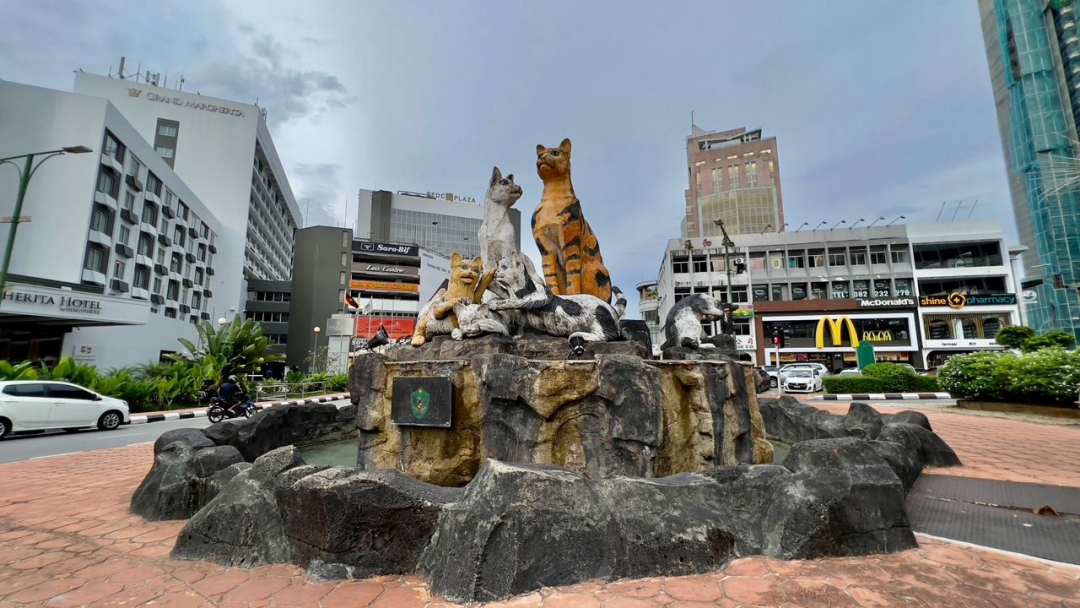ADVERTISE HERE

However, if elections were to be reinstated at all in this state, they would have to be held for all local authorities, not just limited to the urban and city councils. – Photo by Roystein Emmor

THERE appears to be a resurgence of interest in local government elections in Sarawak judging by the recent statements made by two federal legislators from Sarawak, Bandar Kuching MP Dr Kelvin Yii and Senator Robert Lau, at the recent forum called ‘#KitaAdaNombor’, held by Rise of Social Efforts (ROSE) in Kuching.
I have been advocating the restoration of the elections for years, and I am so glad that at least two Sarawakians of high standing are interested in the revival of the same subject.
However, if elections were to be reinstated at all in this state, they would have to be held for all local authorities, not just limited to the urban and city councils.
Some speakers at the forum had alluded to this restriction.
Repeat – all councillors of the district councils, urban or municipal and city councils must be elected on a regular basis, a must for a country like Malaysia, in order to sustain the various vital organs of good governance.
In our case, Sarawak, there is every justification for the restoration of elections to the councils.
History buffs will tell you that the Colonial Government of Sarawak (1947-1963), having in mind self- government and eventual political independence for the colony, had enacted the Local Authorities Ordinance 1948 for the express purpose of slowly and steadily inculcating in the young Sarawakians the fundamentals of self-government.
Gradually, we were weaned away from the absolute rule, a century of Brooke Raj, towards a democracy of sorts along the main lines of the Nine Cardinal Principles, which became the basis of the Sarawak Constitution of 1941.
Well, you all know what happened to that constitution. War happened!
This political education for Sarawakians through elections to councils was designed for a good purpose and would have continued uninterrupted had the Federation of Malaysia not been formed.
In the circumstances of the time (dangerous post-war geopolitics in South East Asia), the British politicians at the White Hall at the time thought of an alternative to independence for Sarawak.
At hand was the shorter route to it: merger with Malaya, Singapore and North Borneo.
Frankly, the British were in a hurry to get out, and sticking Sarawak and Sabah on the tail end of Malaya was one quick solution.
We were persuaded to join an enlarged federation, not without certain specific ‘safeguards and conditions of merger’, though.
One of the conditions was the retention of the power and authority to Sarawak to legislate in matters relating to local authorities, including the elections to the councils and the responsibility over primary education.
Oh yes!
For so long we have missed the chance to develop leadership skills in local government administration without electing councillors of our own choice.
In Peninsular Malaysia, the excuse to do away with local elections despite the recommendations by the Athi Nahapan Commission was that the country would go bankrupt.
Blaming the cost of these elections. As stupid excuses go, this is a good one, but did it fool the public?
Any deficit in the budget of a council is deemed to be a failure of the system itself, and an excuse to do away with elected councillors.
The real reason is the fear of competition in terms of political clout of the elected councillor in the community. He can give the council officers a hard time if his voters report a clogged drain, or a line of bins overflowing with trash of all descriptions.
If he does not take action, he will not be re-elected, you understand. But this is a good service for the ratepayers.
We have aborted the progress of local government managed by competent elected councillors.
Appointed by their party leaders, they are expected to toe the political line, never mind the drains and the rubbish bins.
An elected councillor, however, has to deliver the goods – doing his best to carry out or implement what he had promised to do, if elected. That is, if he wants to keep his job for another term.
A councillor need not strictly be a party man. He, responsible for the proper development of his ward (constituency), must learn how to be innovative about revenue collection.
If placed on the Committee on Finance, he would be able to advise the committee on how to avoid the deficit of the annual budget. Being proactive and innovative, the elected councillor will be able to get some idea about how to raise revenues for his council without always resorting to the state or the federal government for funding.
Such an innovative councillor can also advise the council on the most efficient way of disposing rubbish to avoid polluting the environment; about the nearest healthcare facilities; the deployment of mobile clinics in far-flung districts; cheap transportation (small buses or vans) within his ward; easy access to preschools and kindergartens; recreational and sport facilities.
These are the kind of things the rate-paying residents want, not what a random YB (elected representative) wants them to have: expensive prestige projects turning into white elephants in no time.
The satisfaction of the residents matters in a well-managed council, first and foremost. The jurisdiction of local authorities covers every inch of Sarawak, but they need elected councillors who are not party-tied, who think of the best for the ratepayers and the residents of a particular locality or ward.
Of the people, for the people, and the councillor represents the people because he or she was elected by the people.
* The opinions expressed in this article are the columnist’s own and do not reflect the view of the newspaper.








 English (US) ·
English (US) ·